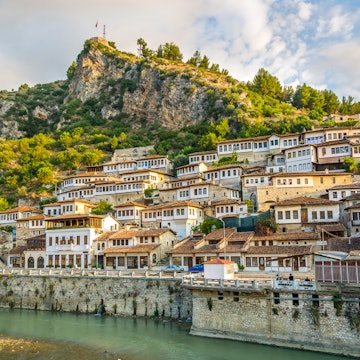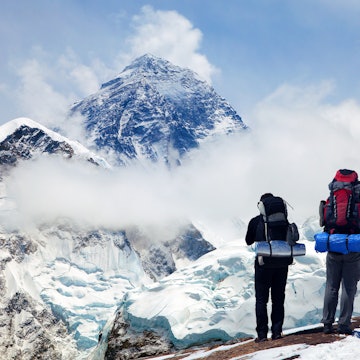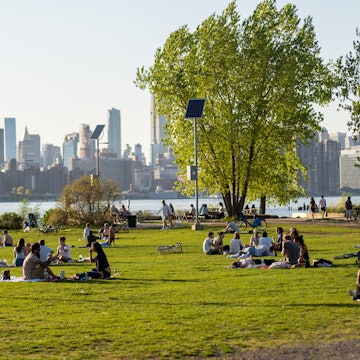

People wade through the waters off Waikiki beach, as a long clear rainbow arches its way to diamond head in the distance.
Ah, Hawaii ... beloved by millions as the land of sunshine and sand. Yet this tropical eden is also the land of rainbows. Breathtaking swatches of resplendent color often stretch across the skies, but they wouldn’t be possible without one of the islands’ most cherished natural blessings: rain.
In fact, it rains in the islands almost daily (albeit perhaps for only five minutes). Yet those living here welcome rain, even revere it. For many, the sprinklings from the skies aren't a damper to their days, but a gift from the heavens. Following their cue, we’ve compiled some of O’ahu’s best bets for filling rainy days with excursions as great as a day at the beach.

A day at the museum
Much as Hawaiians see rainfall as a divine experience, Swiss architect Mario Botta describes similar emotions about museums: 'A museum is a spiritual place. People lower their voices when they get close to art,' he said. This sentiment is reflected in O’ahu’s many museums, each of which provide spectacular art, intriguing history, and a sanctuary for the healing hush Botta describes.
Bring your inquisitive mind to Bishop Museum, O’ahu’s official museum of natural and cultural history. There you can browse among fascinating exhibits and interactive presentations, with insights into the royal family of Princess Bernice Pauahi Bishop, O’ahu itself, and other Pacific cultures via artifacts, authentic heirlooms, and more.

When you’re pau (finished) at Bishop, hop over to Hawaii State Art Museum. Located in the historic No. 1 Capitol District Building, it is dedicated to the art and unique culture of the islands. Rotating exhibitions honor and inspire further investigation into the folklore and mystical art of the Hawaiian and Polynesian peoples.
Not too far away is your next stop: Honolulu Museum of Art. Opened in 1927 and made possible by the collection of Anna Rice Cook, it is now the state’s largest private sector museum, housing more than 50,000 works of art from every corner of the globe.

Architectural wonders and royal residences
Spending an afternoon at American heiress and philanthropist Doris Duke’s Shangri La is like stepping into another world, gilded with mosaics and tile, filled with art, and perched by the sea. The stunning mansion that the billionaire built – and lived within – is found near Diamond Head. Visitors may tour the items collected by the heiress on her many travels, with an emphasis on Islamic art and other cultures from all across the globe. Walk among the masterpieces in the 'Mihrab Room' or the eye-candy delights of the 'Damascus Room' while, just for a moment, imagining what it must have been like to be Doris Duke, living among such splendor and history.
From Duke’s regal digs to Hawaii’s true royal residences, we venture to downtown Honolulu’s ʻIolani Palace, the gorgeous residence from which King Kalakaua and Queen Liliʻuokalani once reigned. Open for tours and filled with history and beauty, this is a must-see stop.
Also providing a snapshot into the sweet life of Hawaiian royalty is Queen Emma Summer Palace, the secluded retreat where Queen Emma, her husband King Kamehameha IV, and their son, Prince Albert, would spend the warmest months. Within its idyllic walls await intriguing royal antiques and furnishings – all still standing in their original locales, right down to the the prince’s original koa wood cradle.

Mahalo to the finest pilots and sailors
This list would be remiss without suggesting a stop to say mahalo (thank you) and honor the brave men and women who served in Hawaii’s military efforts. Pay homage to the pilots at the Pacific Aviation Museum, housed in Hangars 37, 54, and 79 of Pearl Harbor's Ford Island. Visitors can view a film depicting the harrowing events of the Pearl Harbor attack, along with a replica debris field, aircraft replicas, and more.
Continue your tribute at Pearl Harbor, where you can explore the Pacific Historic Parks, the USS Arizona Memorial, the Battleship Missouri Memorial, the USS Bowfin Submarine Museum and Park, and the USS Oklahoma Memorial.

Trek to an O’ahu temple
O’ahu’s Byodo-In Temple, tucked away in Kahaluʻu’s Valley of the Temples Memorial Park and nestled at the foot of the captivating Ko'olau Mountain Range, is a more modern, smaller-scale replica of the ancient one in Uji, Japan. The treasured landmark was built in 1968 to commemorate the 100-year anniversary of the first Japanese immigrants to the Islands. Open to the public, the non-denominational sacred space welcomes people of all faiths to enjoy the spirit that resides here. The entry fee to the temple is $3.
The Hawaiian language has more than 200 names for rain, each inspired by the kūpuna (ancestors) – a nod to how consciously ancient Hawaiians observed and were connected to their aina (land) and environment. Whether you call them drizzles or downpours, after spending a day being 'driven inside'by the rains you, too, may call them a blessing.















